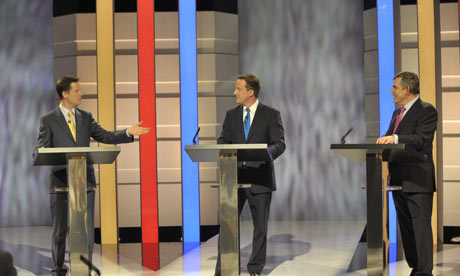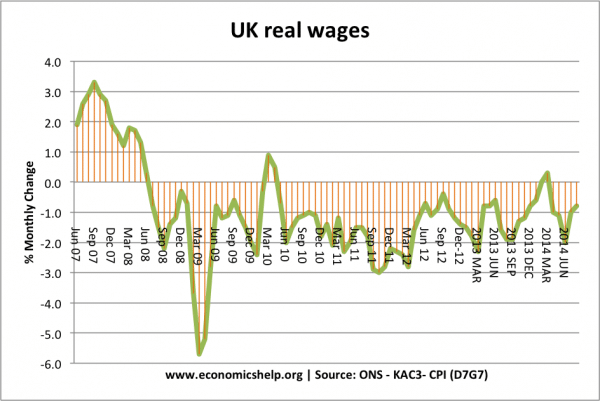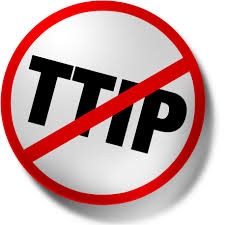The leaders' debates were an innovative feature of the 2010 General Election, giving the people of the UK the chance to see the principal contenders for their electoral affection go toe-to-toe over the major issues of the day. So far in 2015, however, they have proved an innovative way for the Conservative Party to waste everyone's time.
The History of TV Debates
The original three debates, featuring Gordon Brown, David Cameron and Nick Clegg, took place over a three-week period in the run-up to the election on the 6th of May. The televised verbal duel between the main contenders have been a feature of US Presidential elections for years, but - despite the efforts of previous party leaders to get them introduced since 1964 - they have not been historically used in Britain.
The main objection to this head-to-head style of pre-election politicking is that it was suited only to a Presidential style of political leadership, which is not the way we do things in Britain. At a General Election, after all, we vote for individual MPs, not for a political party and certainly not for a party leader. In theory.
 The reality, of course, is that UK politics has become ever more Presidential over time, with the election and ten-year premiership of Tony Blair - the most President-like leader Britain has ever had in peacetime - sealing its fate. We vote, at election time, in most cases for the party we most identify with rather than the individual candidate that we best like.
The reality, of course, is that UK politics has become ever more Presidential over time, with the election and ten-year premiership of Tony Blair - the most President-like leader Britain has ever had in peacetime - sealing its fate. We vote, at election time, in most cases for the party we most identify with rather than the individual candidate that we best like.
So, the debates were introduced - at the insistence, mainly, of opposition leaders David Cameron and Nick Clegg. Now, however, Cameron is trying to get out of them. Recognising that the old argument wasn't going to wash in light of his own support of the debates just five years ago, he has turned instead to a plethora of others.
Proposals
The original proposal for the 2015 pre-election debates - all the way back in October - was for a debate between Cameron and Labour leader Ed Miliband, a second debate also including Nick Clegg, and a third also including UKIP boss Nigel Farage. However, several smaller parties contested this decision - in particular the Green Party, who argued that they were performing on a level more or less equal to the Lib Dems in the polls.
This began a long saga of political tussling over how exactly the debates should be held. The broadcasters initially rejected the Greens' demand for inclusion, prompting legal action. Cameron then declared he would not take part without the Greens. Miliband, Farage and Clegg wrote letters to the PM demanding he meet their challenge, but Cameron refused to budge.
In January, the broadcasters announced revised plans: One head-to-head between Cameron and Miliband and two seven-way debates also including Nick Clegg, Nigel Farage, Green Party leader Natalie Bennett, SNP leader Nicola Sturgeon and Plaid Cymru leader Leanne Wood. These plans were then confirmed on the 23rd of February, with the first seven-way to take place on the 2nd of April, the second on the 16th, and the head-to-head on the 30th of April - just a week before the election.
Political Quibbling and David Cameron's Cowardice
These plans weren't perfect. The DUP and SInn Fein - the two principal Northern Irish parties - both complained that if the SNP and Plaid were involved, they should be too. George Galloway, the single MP for the Respect Party, made a similar argument - if the Greens were to take part, with just one MP, then his party ought to have a chance to speak too. These points are both valid criticisms.
To my mind, the correct solution would be to have a debate between the leaders of all the parties standing nationally (Conservatives, Labour, Lib Dems, UKIP and the Greens) and then separate debates featuring the Scottish, Welsh and Northern Irish leaders of those parties along with the nationalists. The head-to-head between Cameron and Miliband, as the only two realistic candidates for Prime Minister, also should go ahead. But this is really a side issue.
 Whatever the form of the debates, the main thing is that they should happen. In a system where the policies of political parties, and increasingly the calibre of their leaders, is important to how people cast their votes, we need to be able to see the people clamouring for our support make clear unambiguous statements of their views and then defend them. As David Cameron said back in 2010, they are essential for our democracy. And yet, he has proven the greatest block on them occurring of all.
Whatever the form of the debates, the main thing is that they should happen. In a system where the policies of political parties, and increasingly the calibre of their leaders, is important to how people cast their votes, we need to be able to see the people clamouring for our support make clear unambiguous statements of their views and then defend them. As David Cameron said back in 2010, they are essential for our democracy. And yet, he has proven the greatest block on them occurring of all.
His latest objection is that the debates ought not to take place too close to the election, and therefore there isn't time any longer to stage the three debates which have been planned. The fact that the main reason that there is no time left is his own refusal to agree to the broadcasters' plans is clearly not something which bothers him. Instead, he is now calling for a single debate to take place before the end of March, including the seven leaders who the broadcasters have identified. The other seven-way and the head-to-head are to be scrapped.
Both Cameron and the broadcasters have dug in their heels, the latter threatening to empty-chair the PM if he doesn't turn up. The problem with that, though, is that they might run afoul of pre-election impartiality rules if they allow Miliband to speak for 90 minutes in the 'head-to-head' without Cameron present. So, it becomes a war of attrition - each side trying to batter the other with enough political smears to make them cave in.
Frankly, the reason for all this is that David Cameron is running scared. His delaying tactics have all been a ruse to fill out the larger debates with as many leaders as possible, in essence to reduce the airtime of Nigel Farage, who he knows will cut percentage points into Tory support with every minute he gets to speak.
His objections to the head-to-head debate are less obvious, but he fears Miliband may prove more competent in debate than people will expect him to. Most people's opinion of the Labour leader is the media-fuelled caricature of him as a bumbling buffoon, and whilst he certainly isn't the most charismatic leader Labour have ever had, he is a far more skilled public speaker than is perhaps apparent.
Conclusions
At this point, it looks increasingly unlikely that the debates will happen. If they do, they will most likely be reduced to Cameron's ultimatum of the single seven-way debate before the short campaign starts on March 30th. Since this will mean having them before the parties have even published their manifestos, this makes the entire process rather less meaningful.
Through his constant prevarications and craven cowardice, David Cameron has all but scuppered what he himself claimed were debates 'essential to our democracy'. The Prime Minister's commitment to the ideals of 'democracy' have surely to be questioned, therefore. Once again, a leading politician has put politicking before principles and sacrificed the people's right to make an informed choice about their leaders on the altar of grabbing a possible head start in the political race for No. 10.
It is a sickening display, and he should be fully ashamed of himself. But I doubt he cares.
























